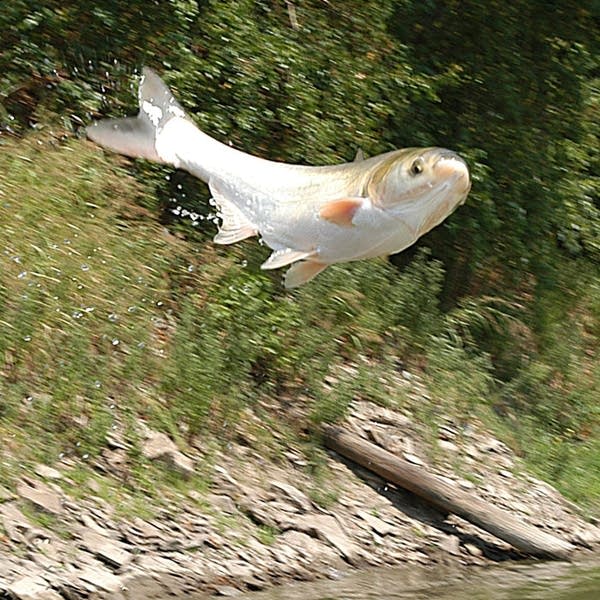Asian carp may have invaded Great Lakes
Go Deeper.
Create an account or log in to save stories.
Like this?
Thanks for liking this story! We have added it to a list of your favorite stories.

Federal officials say the despised Asian carp may have breached an electronic barrier designed to prevent it from invading the Great Lakes and jeopardizing the $7 billion sport fishery industry.
Officials with the Army Corps of Engineers said Friday that DNA of the giant carp have been found north of the barrier in the Chicago Sanitary and Ship Canal.
If correct, that would mean the carp might reach Lake Michigan if they get through a navigational lock. From there, they could spread throughout the Great Lakes and out-compete native species for food.
Asian carp escaped from Southern fish farms in the 1990s, and have been migrating up the Mississippi and Illinois rivers. They can exceed four feet in length and 100 pounds. Some varieties of Asian carp can jump several feet into the air and have injured boaters.
Turn Up Your Support
MPR News helps you turn down the noise and build shared understanding. Turn up your support for this public resource and keep trusted journalism accessible to all.
Conservation groups have called for the immediate closure of all Illinois gateways and locks leading to Lake Michigan, to prevent the carp from invading the Great Lakes.
"If we don't close the locks, we are waving the white flag and allowing one of the greatest ecological tragedies to occur," said Jennifer Nalbone, campaign director of Invasive Species and Navigation for Great Lakes United, in a statement released Friday. "If the Asian carp make it to Lake Michigan, the damage to fisheries in the Lakes and tributaries will be profound and irreversible."
DNR officials plan to use electro-fishing to search for the invasive fish in Illinois, sending an electrical current through the water to cause fish to rise to the surface. The method temporarily stuns the fish, but does not cause injury.

Jay Rendall, the invasive species coordinator with the Minnesota DNR, says he expects the fish will eventually make their way to Lake Superior. He says the state lacks federal funding to install electronic barriers, and that few prevention methods are available.
Asian carp have already been found in the St. Croix and Mississippi Rivers in southern Minnesota.
"I was kind of surprised that this past summer we didn't have reports from boaters or anglers on those rivers that had seen them jumping further north," Rendall said. "I guess that's a good sign that they aren't more abundant here, but I don't think it's too far down the road that we should expect that."
Minnesota law requires that anglers notify the DNR when they see or catch Asian carp. Randell says anglers should keep the fish, so that officials can confirm its species.



